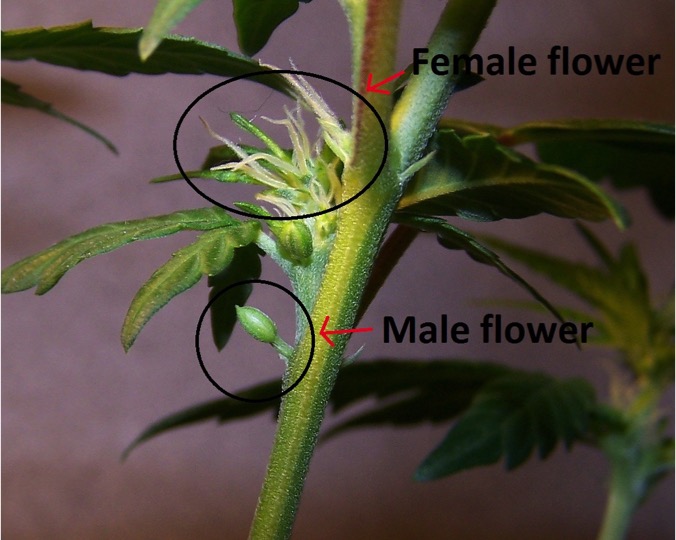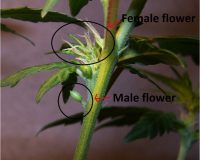Recent trends in the cannabis space and media headlines reveal the challenges and complexities of the evolving cannabis industry with regard to traceability and compliance. Keeping abreast of the evolving state of legislative requirements is complex and requires effective procedures to ensure your business will flourish. At the forefront is the need to provide complete seed-to-sale traceability from the cannabis plant to the consumer, increasing the demand for effective tracking and reporting technologies to assure cultivators, manufacturers, processors and dispensaries are able to meet regulatory compliance requirements. An enterprise resource planning (ERP) solution offers a business management solution designed to integrate all aspects from the greenhouse and growing to inventory, recipe/formulation, production, quality and sales, providing complete traceability to meet compliance regulations.
The main force driving cannabusinesses’ adoption of strict traceability and secure systems to monitor the growth, production and distribution of cannabis is the Cole Memorandum of 2013 issued by former US Deputy Attorney General James Cole. The document was designed to prevent the distribution of cannabis to minors, as well as prevent marijuana revenue from being used for criminal enterprises. Due to the non-legal status of cannabis on the federal level, the memo provides guidance for states whose voters have passed legislation permitting recreational or medical cannabis use. If states institute procedures for transparent inventory control and tracking documentation, the memo indicates that the federal government will refrain from interference and/or prosecution. Despite the Trump administration rescinding the memo in early 2018, companies have largely continued to follow its guidelines in an attempt to avoid targeted enforcement of federal law. Local government reporting is a primary reason for strict inventory control, necessitating reliable traceability documentation of the chain-of-custody.
Process metrics within an ERP solution are essential in providing the accountability necessary to meet required cannabis compliance initiatives. With a centralized, streamlined and secure system, each process becomes documented and repeatable – enabling best practices to provide an audit trail for accountability in all cannabis activities. Whether cultivating, extracting, manufacturing or dispensing cannabis, an ERP’s functionality assists with compliance demands to manage and support traceability and other state-level requirements.
An ERP solution solves the traceability and compliance issues faced by the industry by providing inventory control management and best practices that automates track and trace record keeping from seed to consumer. Growers are also implementing cultivation management solutions within their ERP and highly secure plant identification methods to mobilize greenhouse and inventory to support real-time tracking. Monitoring the loss of inventory due to damage, shrinkage, accidentally or purposeful destruction is efficiently documented to assure that inventory is accounted for. Similar to other process manufacturing industries, it is possible to produce tainted or unsafe products, therefore an ERP solution that supports product recall capabilities is fundamental. With a centralized framework for forward and backward lot, serial and plant ID tracking, the solution streamlines supply chain and inventory transactions to further ensure compliance-driven track and trace record keeping is met.
Local government reporting is a primary reason for strict inventory control, necessitating reliable traceability documentation of the chain-of-custody. Data regarding inventory audit and inspection details, complete with any discrepancies, must be reported to a states’ seed-to-sale tracking system to conform with legal requirements. An ERP utilizes cGMP best practices and reporting as safeguards to keep your company from violating compliance regulations. Failure to complete audits and meet reporting guidelines can be detrimental to your bottom line and lead to criminal penalties or a loss of license from a variety of entities including state regulators, auditors and law enforcement agencies. A comprehensive ERP solution integrates with the state-administered traceability systems more easily and reliably as compared to manual or stand-alone systems – saving time, money and detriment resulting from non-compliance.
Similar to other food and beverage manufacturers, the growing market for cannabis edibles can benefit from employing an ERP system to handle compliance with food safety initiatives – encompassing current and future requirements. Producers of cannabis-infused products for recreational and medicinal use are pursuing Global Food Safety Initiative (GFSI) certification, employing food safety professionals and implementing comprehensive food safety practices–taking advantage of ERP functionality and processes currently in place in similarly FDA regulated industries.
As legalization continues and reporting regulations standardize, dynamic cannabis ERP solutions for growers, processors and dispensaries will evolve to meet the demands and allow for operations to grow profitably.In addition to lot, serial and plant ID tracking, tracing a product back to the strain is equally important. An ERP can efficiently trace a cannabis strain from seedling through the final product, monitoring its genealogy, ongoing clone potency, CBD and THC content ratios and other attributes. The health, weight and required growing conditions of each individual plant or group of plants in the growing stages may be recorded throughout the plant’s lifecycle. In addition, unique plant identification regarding the performance of a particular strain or variety, how it was received by the market and other critical elements are tracked within ERP system. This tracking of particular strains assists with compliance-focused labeling and determining the specific market for selling and distribution of cannabis products.
Collecting, maintaining and accessing traceability and compliance data in a centralized ERP system is significant, but ensuring that information is safe from theft or corruption is imperative as well. An ERP solution with a secure platform that employs automated backups and redundancy plans is essential as it uses best practices to ensure proper procedures are followed within the company. User-based role permissions provide secure accessibility restricted to those with proper authorization. This level of security allows for monitoring and recording of processes and transactions throughout the growing stages, production and distribution; ensuring accountability and proper procedures are being followed. Investing in an ERP solution that implements this level of security aids companies in their data assurance measures and provides proper audit trails to meet regulations.
In this ever-changing industry, regulatory compliance is being met by cannabusinesses through the implementation of an ERP solution designed for the cannabis industry. Industry-specific ERP provides functionality to manage critical business metrics, inventory control, local and state reporting and record keeping, and data security ensuring complete seed-to-sale traceability while offering an integrated business management solution that supports growth and competitive advantage in the marketplace. As legalization continues and reporting regulations standardize, dynamic cannabis ERP solutions for growers, processors and dispensaries will evolve to meet the demands and allow for operations to grow profitably.








